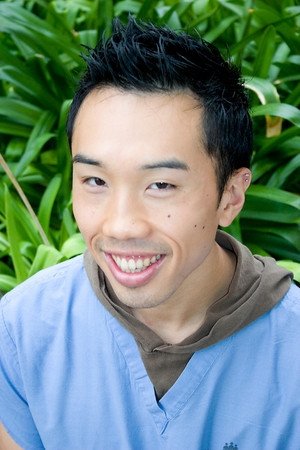
Recently, while enjoying my fourth-year medical school bliss, I was invited to write this blog post about making the transition from a career in nursing to medical school. As a registered nurse with a little over four years of critical care experience, first as a staff nurse and then as a charge nurse, the idea of reflecting on my transition really appealed to me as a way of closing the loop before I graduate.
Nurses Seeking Change Meet Resistance
As I brainstormed the topic with other registered nurses (R.N.s) who, at one time or another, also had considered medical school, one unexpected theme arose in these conversations—the stigma we received from our nursing mentors, who felt we were “turning our backs” on nursing by contemplating medical school.

Former R.N. Jason Leong will receive his M.D. from Einstein on May 28
For me, the idea that I was “turning my back” on nursing was far from the truth; instead, I went to medical school, motivated by my experiences as a nurse, to pursue a career in intensive care. I’m proud to say my nursing years were some of the most formative moments of my life. Being a nurse helped me realize my career goals and gave me deep insight into myself—a sentiment shared by many of my fellow nurses. Yet many of us felt our nursing mentors were not supportive of our choice to go to medical school.
One of my nursing peers said, “They [our mentors] may be sympathetic [about our wanting to go to medical school], but will not actively show support.” Another peer said, “If I had told my nursing professors then, I don’t think they would’ve liked that idea.”
Thinking back to my own experience, I remember sitting on a nursing alumni panel and being asked not to mention that I had chosen to go to medical school.
Why is there a stigma attached to nurses going to medical school?
The Doctor – Nurse Turf Battle
Perhaps part of it stems from a political battle between nurses and physicians about gaining the trust of the American public. This tension has been heightened by the Affordable Care Act and the shortage of primary care physicians. A recent New York Times article, “Nurses Are Not Doctors,” written by a physician, brought on a flurry of comments from both healthcare professionals and the general public, reflecting this M.D. versus R.N. “turf battle.”
Misleading reader comments about differences between nurse practitioners (N.P.s) and doctors were numerous. One commenter noted, “As others have pointed out, the N.P. . . . can provide aspects of care that the typical primary care M.D. doesn’t have time for, including patient education.” I have also heard this opinion from nurses as they are deciding whether or not to go to medical school. A friend once mentioned that a nursing faculty member had suggested that if students wanted to care “holistically” for patients, then they should pick the nursing model.
My experiences at Einstein as a medical student show that patient care isn’t exclusive to nurses. For instance, taking Introduction to Clinical Medicine was the first time I had a course devoted to understanding the nuances and the “art” of conversing with a patient. During that yearlong class, I gained an understanding of the patient’s perspective and the importance of exchanging ideas between the physician and patient, including patient education.
Though medical school committee members have adopted a new paradigm for admitting nurses and other nontraditional students (students who haven’t taken the usual path from undergraduate school to medical school), there can be a bias against R.N.s. When I interviewed for admission at another medical school, I remember being told, “We are more open to people with nursing experience as long as you haven’t been a nurse longer than five years; after that you are too indoctrinated.” I, for one, have been greeted here at Einstein with nothing but curiosity, enthusiasm and at times even admiration for my background as a registered nurse.
Supporting Nurses Becoming Physicians
It is unfortunate that the stigma persists—in academic nursing itself—against nurses who choose to go to medical school. I write this in the hope that the next generation of nursing faculty members can take pride when one of their own, shaped by her or his experiences as a nurse, decides to go to medical school. I just wish more nurses in academia were aware of how politics can bias their advice and therefore influence others in the nursing community.
What would I say to anyone thinking of making the R.N.-to-M.D. transition? Those nurses need to know that the benefits of a medical education are real and substantial, but not without sacrifice; medical training is long and carries a heavy financial burden.
But after my four years at Einstein I can wholeheartedly say that for the right individual, the payoff is completely worth it.


Comments on this entry are closed.
Congratulations on your accomplishment and good luck in your career. It’s an inspiring post about a topic that’s close to my own heart and it’s something I’ll be passing along to friends that are also thinking about making the same leap!
Hello Jason,
I am a first year medical student at Rowan SOM and had been a practicing ER nurse for 6 years, eventually in management, prior to starting school. My experiences had mirrored yours, in the sense that there was more often than not, a negative stigma associated with my wanting to “cross over to the dark side”. You and I both know that the incredible experiences with patient care that we’ve had will greatly benefit our patients in the future. Within a month of school starting, endless amounts of “why?” which I’d had as a nurse were answered. I love nursing as a career choice and will continue to have profound respect for the field of nursing. Nurses are the “keepers” of our patients, as my family doctor put it. With that said, doctors and nurses in the best institutions treat each other as colleagues, understanding that the best pt care depends upon a collaboration between each member of the healthcare team. Doctors must understand that nurses have a different specialty, most specifically pt care management and a good nurse is priceless. A good nurse understands their role and educational limits, N.P.s included, and knows when to refer and reach out for the doctor. There are amazing doctors and amazing brilliant nurses out there; however, there also exists the polar opposite in both fields. I am thankful for the nurses that understood my thirst for knowledge and were supportive of my decision to go to medical school. For me, it was the right choice and I’m privileged to be apart of a group of brilliant people who love science and medicine as much as I do. I will encourage my classmates to be good to their nurses, as I know too well that a great nurse can save a new doctors a**, or at least facilitate good decision making. Thanks for your article.